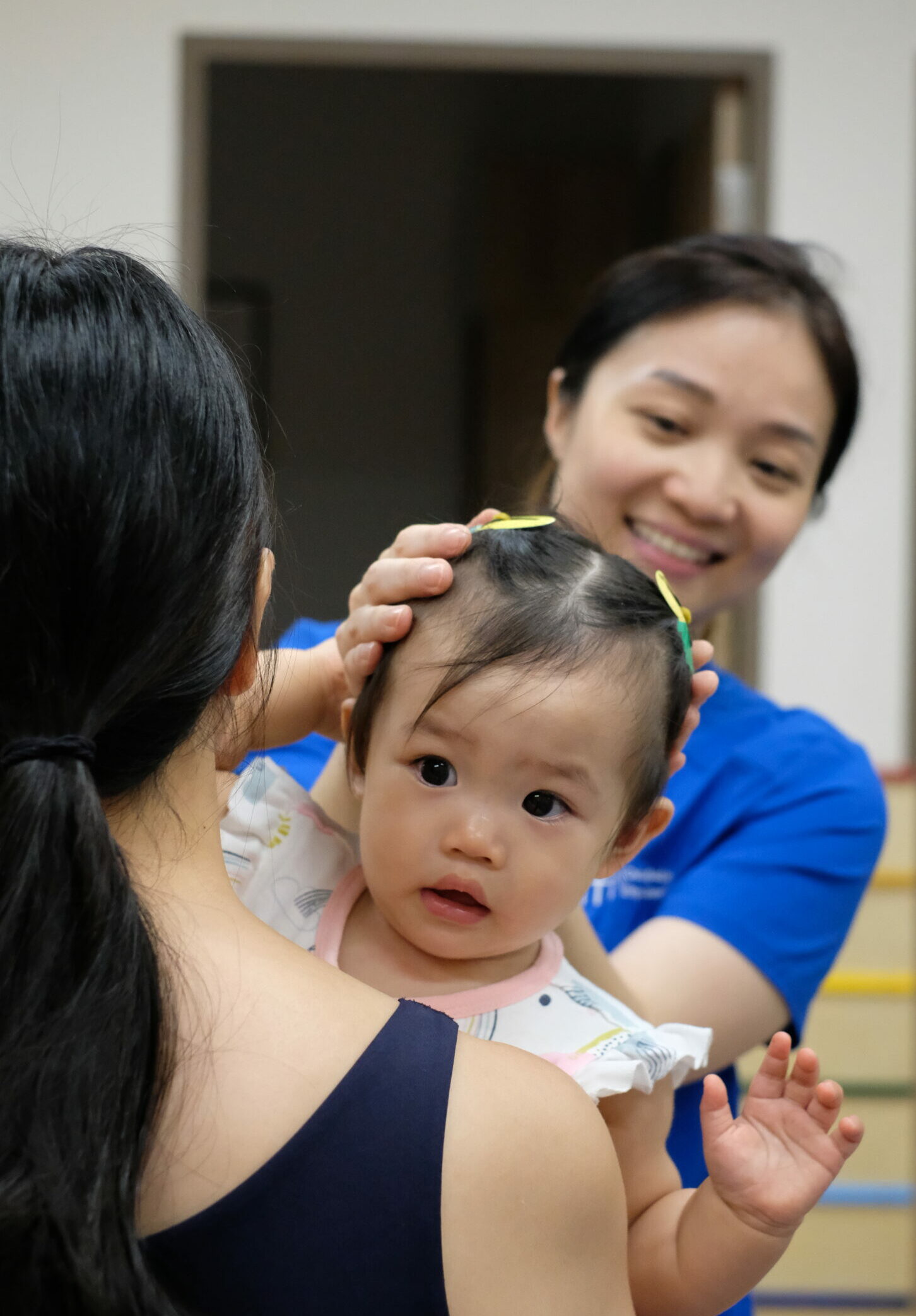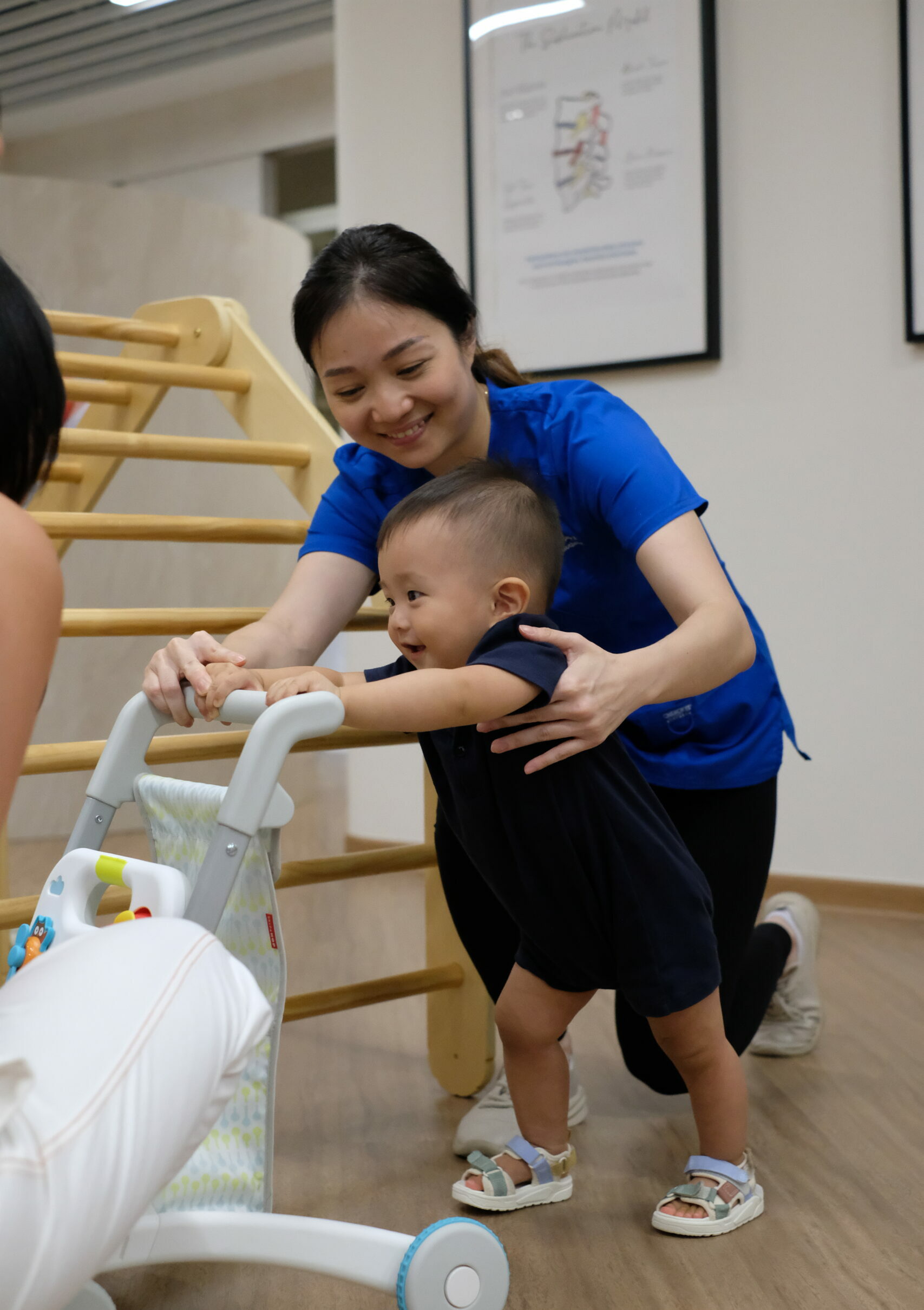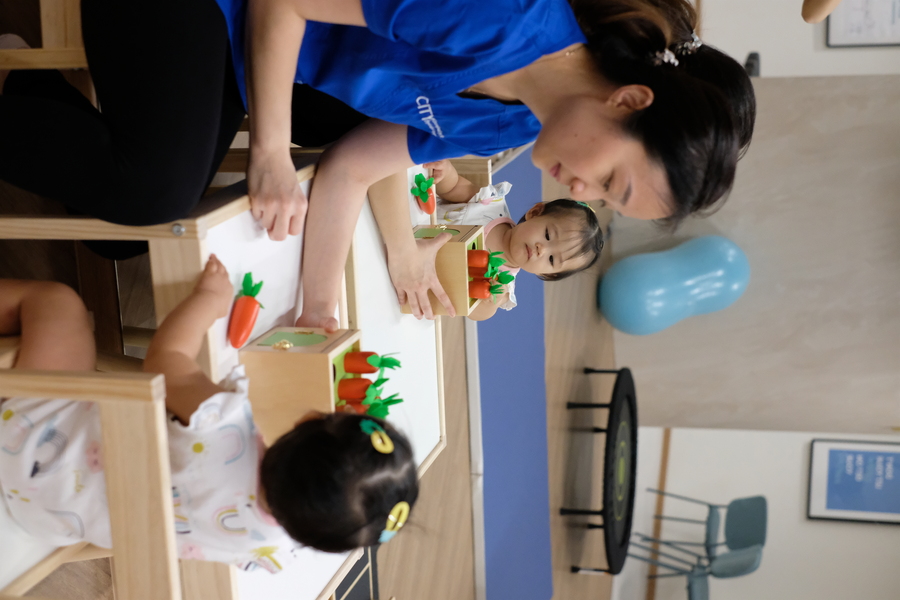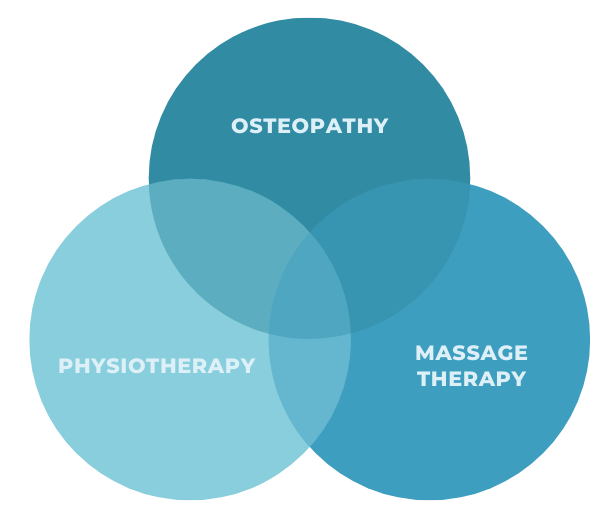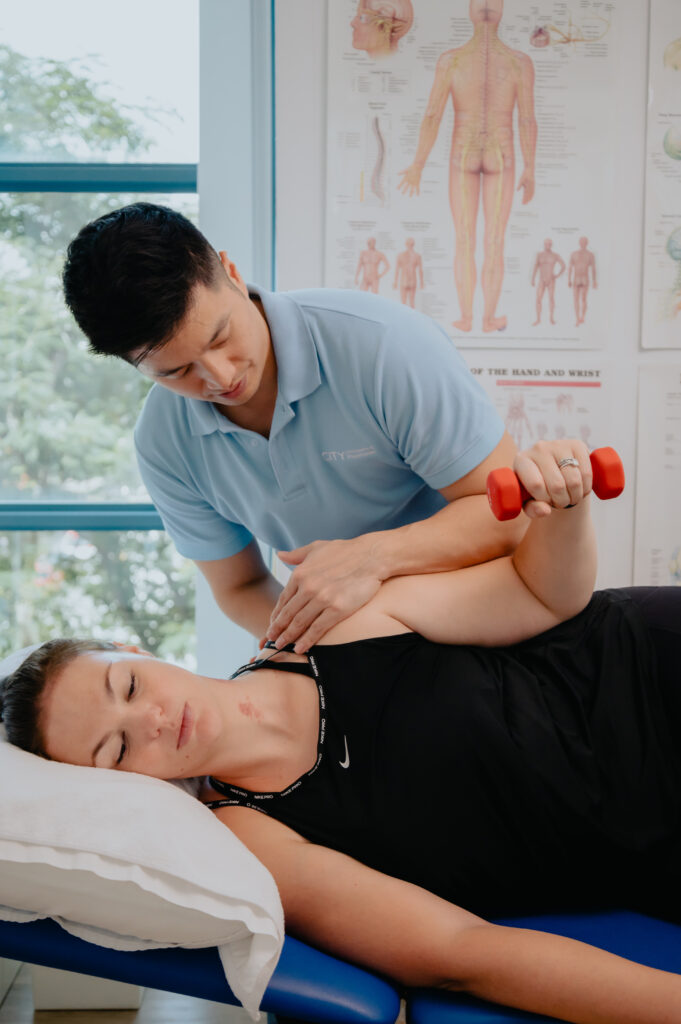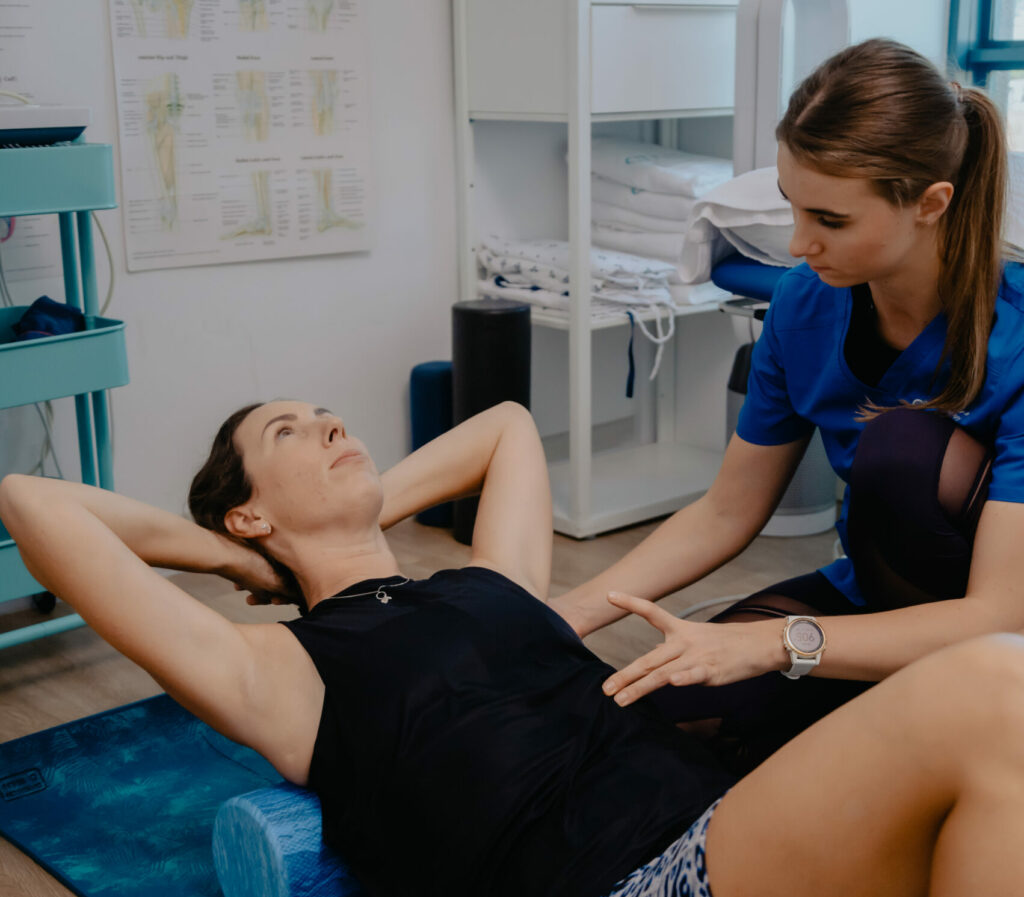Parents play a crucial role in their baby’s physiotherapy journey and can actively contribute to their child’s progress. Here are some ways parents can participate:
- Collaborate with the physiotherapist: Work closely with the physiotherapist to understand the specific goals and treatment plan for your baby. Maintain open communication, ask questions, and share observations about your baby’s progress.
- Follow the home exercise program: The physiotherapist may provide a home exercise program tailored to your baby’s needs. Consistently perform the prescribed exercises and activities with your baby, following the instructions provided.
- Create a supportive environment: Set up a safe and stimulating environment at home that encourages exploration, play, and interaction. Provide age-appropriate toys, encourage tummy time, and engage in activities that promote motor, cognitive, and social development.
- Incorporate therapy into daily routines: Integrate therapy techniques and strategies into your baby’s daily routines. For example, during diaper changes, incorporate stretching exercises or encourage reaching and grasping during feeding time.
- Stay positive and provide encouragement: Celebrate your baby’s achievements, no matter how small they may seem. Offer praise, smiles, and words of encouragement during physiotherapy sessions and throughout the day. This positive reinforcement helps motivate your baby and strengthens the bond between you.
- Seek support and resources: Connect with support groups, online forums, or local community resources that specialise in developmental delays or paediatric physiotherapy. These platforms can provide valuable information, tips, and emotional support from other parents who may be going through similar experiences.
- Educate yourself: Take the initiative to learn about your baby’s specific developmental delay, the techniques used in physiotherapy, and strategies to support your baby’s progress. Attend workshops or educational sessions offered by healthcare professionals to deepen your understanding and equip yourself with the knowledge needed to actively participate in your baby’s therapy journey.
Recognising the signs and symptoms of developmental delays, understanding the importance of early detection, and actively participating in your baby’s physiotherapy journey empowers parents to support their child’s growth and progress. Through a collaborative effort between healthcare professionals, parents, and caregivers, babies with developmental delays can receive the necessary support, interventions, and resources needed to reach their full potential.
If you have concerns about your baby’s development, consult with our paediatric physiotherapist who can guide you in identifying potential delays and recommend appropriate interventions. With early intervention and the support of paediatric physiotherapy, your baby can thrive and achieve their developmental milestones.


